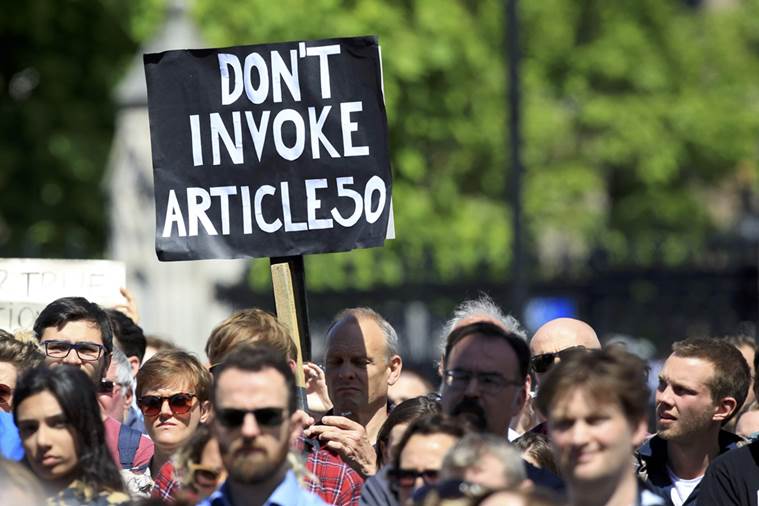
People hold banners during a ‘March for Europe’ demonstration against Britain’s decision to leave the European Union, in central London, REUTERS/Paul Hackett
The June 23 UK referendum to break with the European Union is already sparking legal challenges in London as at least one top law firm is demanding, on behalf of clients, that Parliament must approve the vote and, in particular, Article 50 of the Lisbon Treaty.
The formal start to Brexit talks is likely to be the triggering of Article 50 of the Lisbon Treaty. Law firm Mishcon de Reya said in a statement that this process can only begin with parliament’s consent. The UK government’s position is that it’s a decision for whoever is prime minister after David Cameron tendered his resignation.
The decision of British voters to cut the country off from the EU in referendum has already had a major impact on the currency, global markets and British political parties.
It’s not yet clear how and when the government will trigger Article 50 and start the two-year timeline to Britain’s exit.
Any lawsuit would likely result in a judicial review, where judges assess the legality of the government’s actions, said King to Bloomberg. He said he is still hopeful a political solution can be found without the need for judicial intervention.







